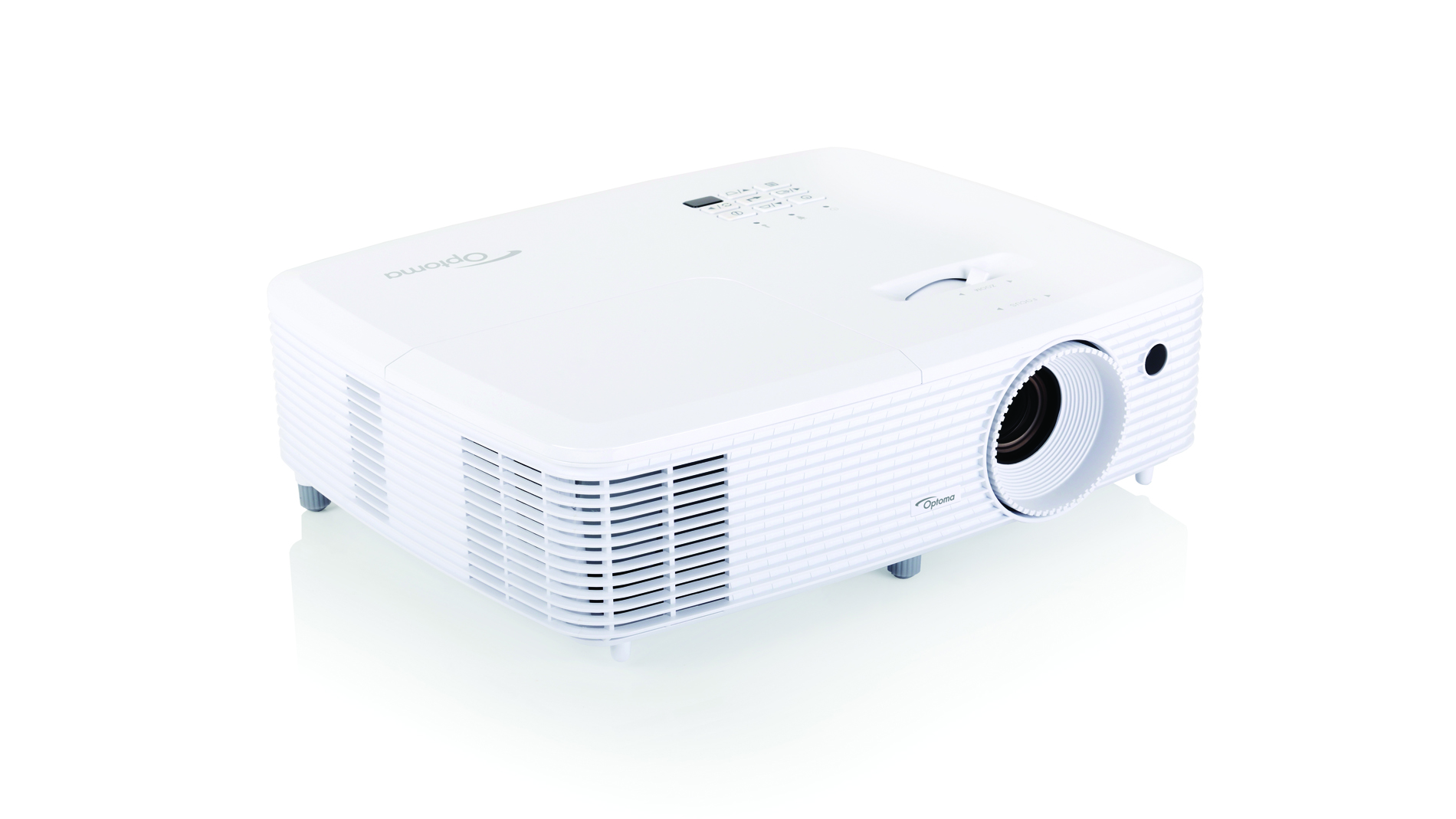TechRadar Verdict
The Optoma HD27 represents ridiculously good giant-screen value. Compact and colourful, this is a 100-inch+ crowd pleaser.
Pros
- +
Compact and easy to set-up
- +
Excellent Full HD performance
- +
Vibrant colour fidelity
- +
Suitable for movies and games
Cons
- -
Doesn't do a deep black
- -
Awful onboard audio system
- -
Limited motion resolution
Why you can trust TechRadar
One inevitable consequence of the UHD shake-up at the top of the home theatre projection market (think pricey 4K models from Sony and faux 4K alternatives from JVC and Epson), is that there are now serious bargains to be had lower down the ranks.
Consider the new $649, £549, AU$949 (approx.) HD27 from Optoma. This single chip DLP projector is intended for home cinema and gaming use. It's bright enough for use in rooms with some ambient light (aka media rooms), and compact enough to store in a DVD or sock drawer when not in use.
Of course, if you want a more permanent installation, it won't look out of place. The gloss white chassis is clearly domesticated.
Design
Connections are comprised of two v1.4a HDMIs, one of which is compatible with MHL enabled smartphones, and a USB port that unfortunately only works for device charging and servicing only. There's also a minijack audio output and a 12v trigger, which can be used to integrate the projector with an electric screen – power up the projector and the screen automatically drops ready for action; switch off the HD27 and the screen retracts.
If you have any particular HDMI connection issues, the projector can be used with Optoma's optional WHD200 wireless HDMI streamer.
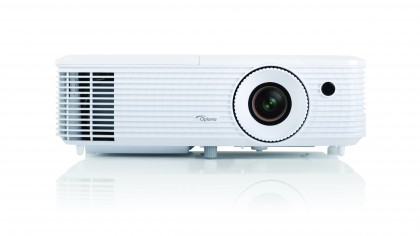
Setup
Setup is quick and easy. Given the price point, it's no surprise to find that zoom and focus are entirely manual. You'll need a decent amount of space, 3m or so, to cast a big 100-inch+ image. To help frame and sharpen, there are built-in test patterns. The feet are also adjustable, to compensate for any table wonkiness.
The projector comes with a small, backlit remote control, but there's also a manual keypad on the top of the unit for full menu access if you want to get hands-on.
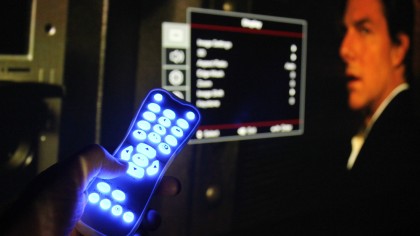
The HD27 has an onboard sound system, rated at a surprisingly rowdy 10W. In truth, you'll not want to use this despite the convenience of not having to faff around with a sound system, as it's harsh and tuneless.
Despite its modest size, the HD27 is rated at a bright 3200 ANSI lumens, good news if you indeed to use the projector primarily for gaming. Of course, for movies, you'll probably want to run the HD27 in a fully dark room.
Performance
The Optoma HD27 looks good straight out of the box. There's a variety of image presets available - Cinema, Vivid, Game, Reference, Bright and User - but there's surprisingly little difference to be had between them. The Cinema preset just about edges it as the go-to preset for dark room viewing. It uses Dynamic Black which adjusts the lamp output on a scene-by-scene basis, and the results are suitably cinematic. Contrast is rated at 25,000:1.
Like all small projectors, operational noise is a minor issue issue. If you don't want the thing to sound like it's trying to get airborne, run the lamp in Eco mode. The specs claim 26dB. Hot air is expelled from the front vents.
Optoma has colour-tuned the HD27 to best match Rec709, and while the flat-panel TV market is now making much of wide colour gamuts, but there's no shortage of vibrancy on view here. If anything, at times the HD27 oversaturates. Edging the colour slider down to 10 typically cures rampant hues.
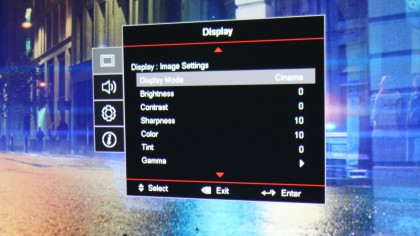
It transpires that the key difference between the HD27 and its HD26 predecessor is a new colour wheel. Optoma wouldn't divulge exactly how the wheel differs, saying only that a new material has been used which enables the projector to deliver 98-99 per cent of the Rec709 colour space.
The HD27 is less happy trying to deliver a deep black. Dark images tend to flatten out and there's a limit as to how much shadow detail is retained.
That said, there are still visual snap aplenty – and with Jurassic World the projector had real bite.
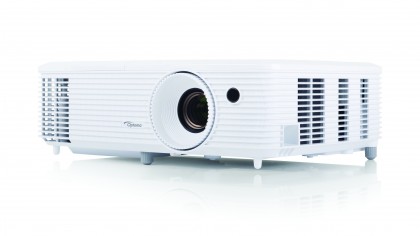
One much debated trait of single chip DLP projectors is rainbow fringing, usually spotted in scenes of high contrast. The good news is here it hardly ever became noticeable – and I eventually gave up looking for it.
I experienced no problems regarding image lag with the projector in its Game mode either. Playing crazy FPS Overwatch on the PS4, the projector's extravagant colour performance and sharp detail lent itself to a superior gaming experience. Images were smooth and pixel-grid free, response times felt good.
The projector supports active 3D when used with an optional 3D emitter. However this is not supplied in the box and so went untested.
Steve has been writing about AV and home cinema since the dawn of time, or more accurately, since the glory days of VHS and Betamax. He has strong opinions on the latest TV technology, Hi-Fi and Blu-ray/media players, and likes nothing better than to crank up his ludicrously powerful home theatre system to binge-watch TV shows.
